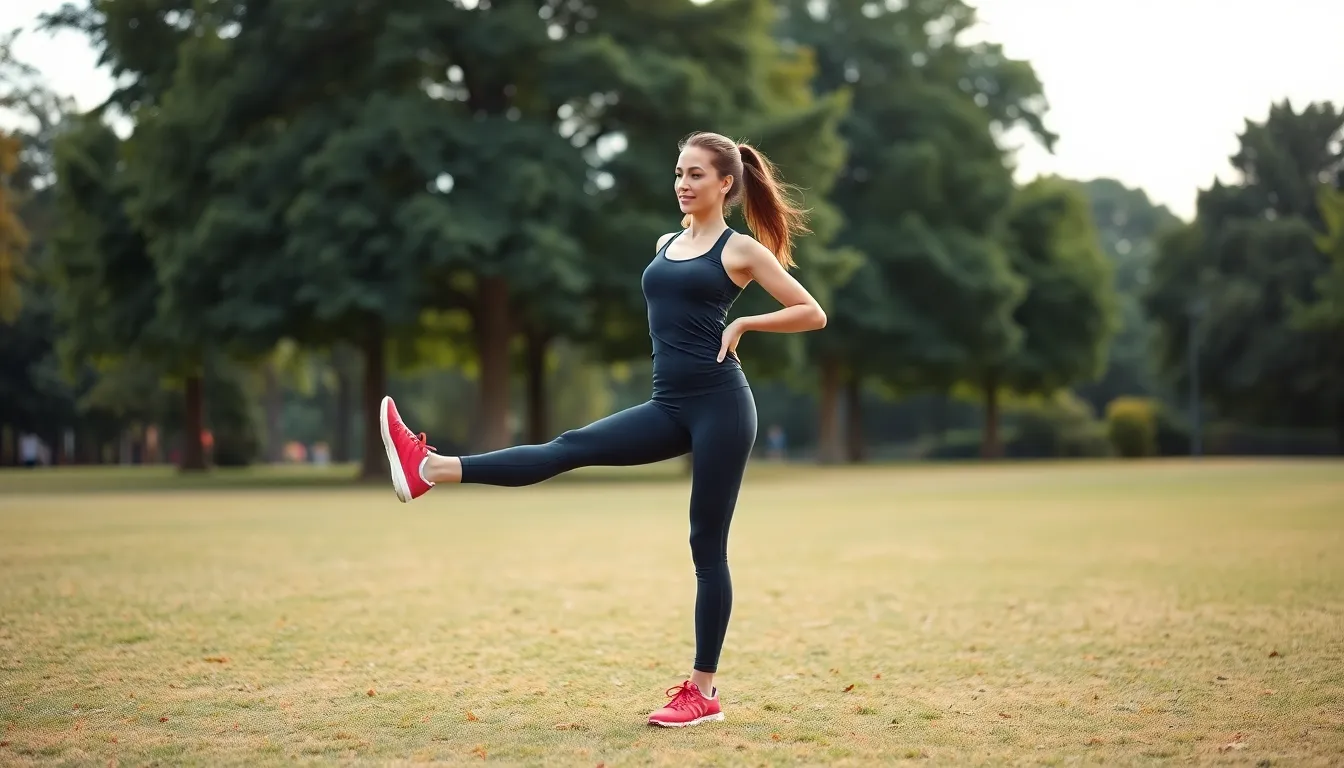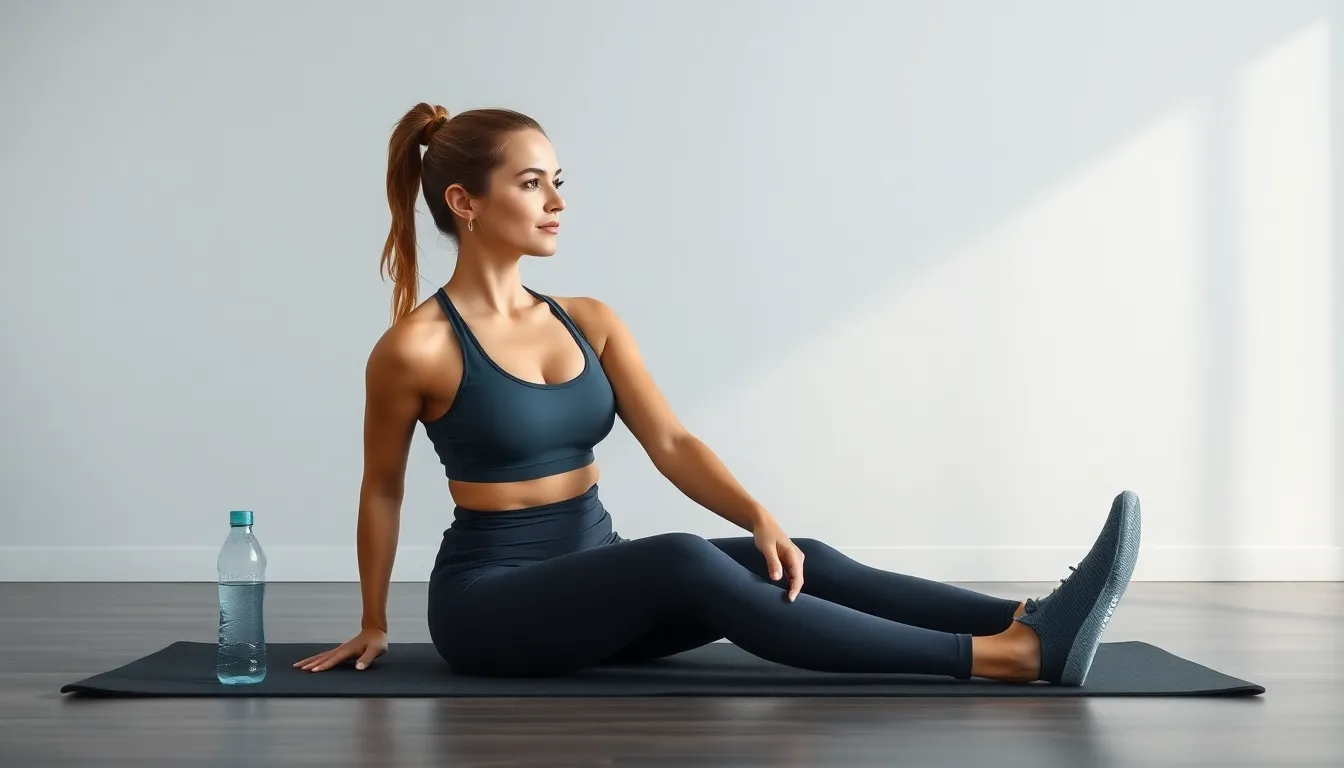Ever found yourself in a post-meal dilemma, wondering if it’s safe to hit the gym or if you’ll end up as the star of a new food-related horror story? You’re not alone! Many people grapple with the age-old question: how long should one wait to exercise after eating? It’s a balancing act between fueling the body and avoiding that dreaded food coma.
How Long To Wait To Exercise After Eating
Digestion plays a crucial role in determining when to exercise after eating. It involves converting food into energy that fuels workouts.
The Digestive Process Explained
The digestive process begins once food enters the stomach. Stomach acids break down food into smaller particles. Nutrient absorption primarily occurs in the small intestine. This process typically takes 2 to 4 hours, depending on the meal’s composition. Complex carbohydrates, proteins, and fats require different amounts of time for digestion. Liquids digest more rapidly than solid foods. Understanding this timeline helps in planning exercise effectively.
Factors Affecting Digestion Time
Several factors influence how long digestion takes. Meal size is significant; larger meals take longer to digest. Food types also play a role; fatty foods and proteins slow digestion more than carbohydrates. Individual differences, such as metabolism and age, significantly impact digestion rates. Hydration levels can also affect breakdown and absorption. Stress or physical activity may speed up or slow down the process. Recognizing these factors aids in determining optimal timing before workouts.
Timing Your Exercise

Timing exercise after meals influences performance and comfort. Finding the right interval promotes effective workouts and nutrient utilization.
Immediate Post-Meal Exercise
Exercising immediately after eating can lead to discomfort. Blood flow prioritizes digestion, making strenuous activities challenging. Light activities like walking can be manageable and suitable for enhancing digestion. Heavy meals, particularly those high in fat and protein, typically require more time before engaging in vigorous exertion. Factors such as the individual’s unique digestive pace also play a role. Stomach discomfort may arise when engaging in intense workouts too soon after meals.
Waiting Period Recommendations
Most guidelines recommend waiting between 30 minutes to 2 hours after eating before exercising. Light snacks may only require a brief 30-minute wait, while larger meals could necessitate a 2 to 4-hour interval. Individual metabolism rates can vary significantly, so personal adjustments may be essential. Timing also depends on the meal’s composition, with carbohydrates digesting more quickly than fats or proteins. Ensuring hydration during this waiting period can further enhance performance and comfort during exercise.
Types of Food Consumed
Food types significantly affect how long someone should wait before exercising. Carbohydrates and proteins each have distinct characteristics that impact digestion and exercise timing.
Carbohydrates vs. Proteins
Carbohydrates digest quickly, providing a rapid energy source for workouts. Many athletes find it beneficial to consume easily digestible carbs like fruits or oatmeal about 30 minutes before exercise. Proteins, on the other hand, take longer to digest, typically requiring 2 to 3 hours. Heavy protein meals, such as steak or chicken, can lead to discomfort if exercise starts too soon. Balancing carbohydrate and protein intake is essential for optimal performance. Individuals may consider light sources of both, like yogurt with granola, which can blend energy needs with digestion comfort.
Impact of Fats on Exercise Timing
Fats significantly slow down digestion, making them less ideal before intense workouts. High-fat meals, such as cheeseburgers or fried foods, may require up to 4 hours for proper digestion. Discomfort may arise when attempting vigorous activity soon after consuming fatty foods. Choosing lower-fat options or timing fat intake around exercise helps maintain energy without hindering performance. It’s beneficial to plan meals with carbohydrate and protein focus while limiting fats before workouts. Fats still play a vital role in nutrition but should be consumed wisely to avoid exercise-related issues.
Personal Considerations
Understanding personal factors plays a key role in determining the right time to exercise after eating. Individual metabolism rates significantly affect digestion speed. Some people naturally digest food faster than others, impacting how long they should wait before exercising. For instance, a person with a quicker metabolism may feel ready to exercise sooner, while someone with a slower rate might prefer a longer wait.
Evaluating exercise intensity and duration also matters. High-intensity workouts usually require a longer digestion period to prevent discomfort. Conversely, light or moderate exercises may be feasible shortly after eating. A short duration activity, such as walking, can help stimulate digestion without causing excessive pressure on the stomach. Balancing exercise types and personal metabolism helps optimize workout effectiveness.

